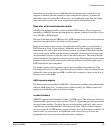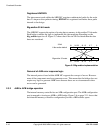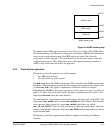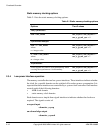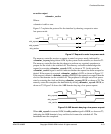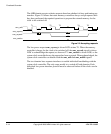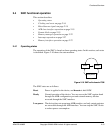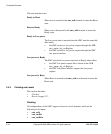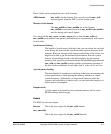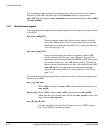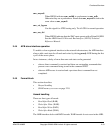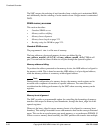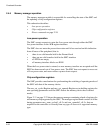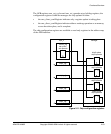
Functional Overview
ARM DDI 0389B Copyright © 2006 ARM Limited. All rights reserved. 2-17
These clocks can be grouped into two clock domains:
AHB domain smc_aclk is in this domain. You can only stop the smc_aclk
domain signals when the SMC is in low-power mode.
Memory clock domain
The smc_mclk0 and smc_mclk0n are in this domain.
smc_mclk0n is an inverted version of smc_mclk0. smc_mclk0 is
used for timing and control signals.
You can tie off the smc_async and smc_msync pins so that the smc_aclk and
smc_mclk0 clock domains can operate synchronously or asynchronously with respect
to each other.
Synchronous clocking
The benefit of synchronous clocking is that you can reduce the read and
write latency by removing the synchronization registers between clock
domains. However, because of the integer relationship of the clocks, you
might not be able to get the maximum performance from the system
because of constraints placed on the bus frequency by the external
memory clock speed. In synchronous mode, the handshaking between the
smc_aclk and smc_mclk0 domains enables synchronous operation of
the two clocks at multiples of each other, that is, ratios of n:1 and 1:m.
Asynchronous clocking
The main benefit of asynchronous clocking is that you can maximize the
system performance, while running the memory interface at a fixed
system frequency. Additionally, in sleep-mode situations when the
system is not required to do much work, you can lower the frequency to
reduce power consumption.
Output clocks
A clock output is provided for every external memory device on the
SRAM memory interface type.
Resets
The SMC has two reset inputs:
hresetn This is the reset signal for the smc_aclk domain.
smc_mreset0n
This is the reset signal for the smc_mclk0 domain.



